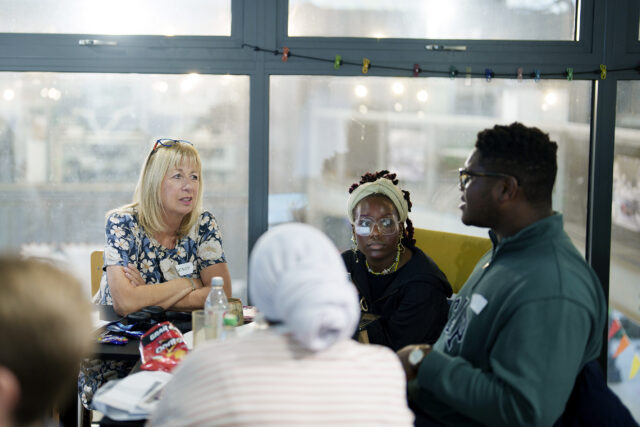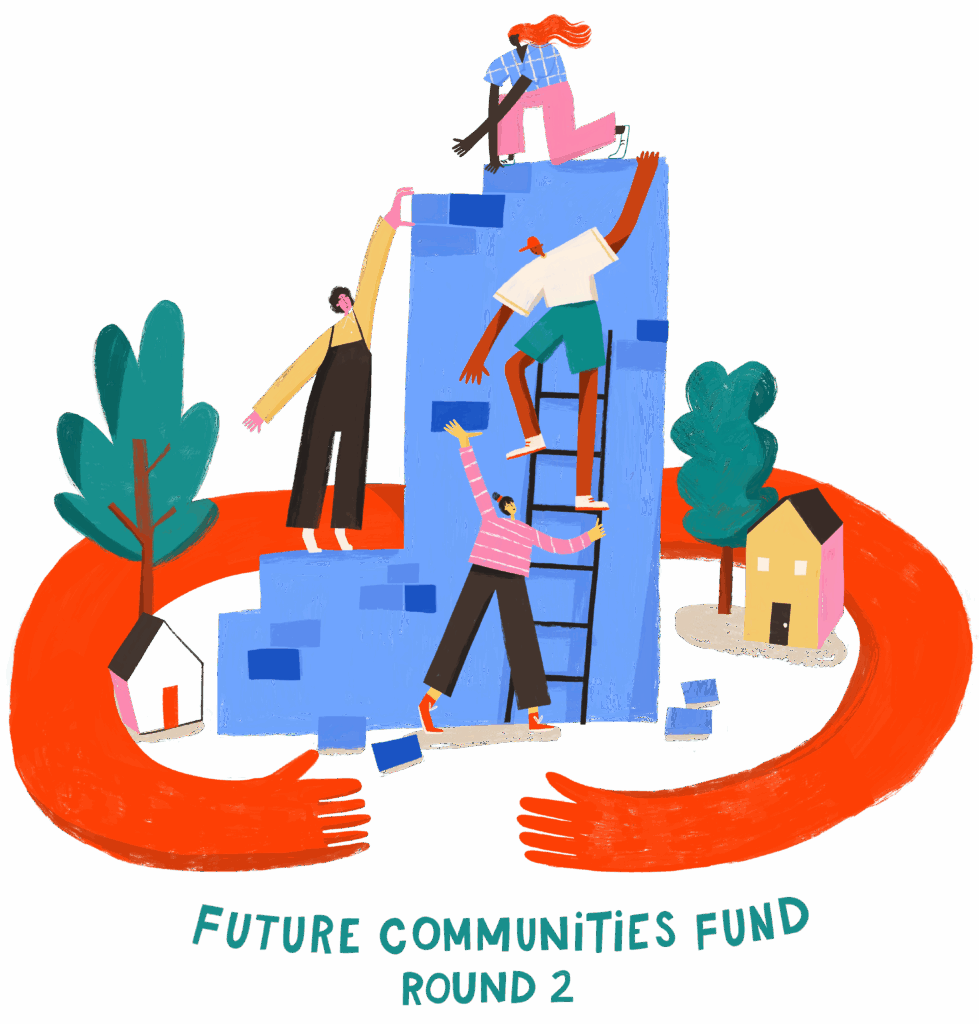The second round of our Future Communities Fund opens today

This round of funding is now closed for applications.
When we were launching round two of the Future Communities Fund, we knew our focus would be different from the first round.
We did work with a collective of young people for the first round of funding, but decisions about design and approach to this fund have involved young people much more deeply this time around. We recruited new members for the collective, working with them from September 2024 to induct, support and provide wider knowledge about the issues this fund seeks to address. This means we’ve been able to encourage our collective to lead as much as possible. This work has also been supported and facilitated by HUDL Youth Development Agency, who have brought a wealth of experience and knowledge into our sessions with young people.
In addition, a number of listening sessions were held with young people with experience of the justice system. This means that we can better understand the issues the fund is seeking to address – who better to tell us what works and what good looks like?As a result of their input, along with the results of our commissioned research, we are focusing on supporting organisations that are helping young people away from the justice system, so that they can re-engage with their communities in a meaningful way.
We’re proud of how this fund has been developed in such a thoughtful and expert-led way. As grant makers, we have provided guidance, support and training, but have stepped out of the way when it comes to supporting young people to take a lead – which is as it should be.
What funding is available?
We’re looking to fund approximately ten organisations through this £1.75m programme round. Grants will be up to a total of £150,000 over five years and will be awarded on an unrestricted basis. As with the first round of our Future Communities Fund we hope to engage a Learning Partner to support us and our funded partners for the duration of the funding programme. We have included budget for this within the £1.75m.
We want to fund organisations which are directly supporting young people to move on from the justice system, in ways that help them to fulfil their potential.
Read our guidance notes.
Read our frequently asked questions.
Find out more about our Artificial Intelligence (AI policy) and how this relates to applications.
Funding led by young people
This funding has been set up with the support of our Future Communities Collective. This diverse group of young people have co-designed the programme and have responsibility to make funding decisions for the first stage of applications to the fund. Our collective will be involved throughout the decision-making process.
Our work also would not have been possible without the participation of young people from Leaders Unlocked, who have direct experience of the justice system and have also led and shaped the development of this fund.
All of the young people who have supported the development of the fund have helped us to work towards the priorities laid out within our strategy and continually challenged us, providing and embedding a youth perspective into how we work. We know that young people need to have a say in their future. They’re the next generation of leaders and pioneers – and they want to help other young people to have a voice.
Using evidence to shape our funding
Creating safer communities is one of our strategic priorities and the second round of our Future Communities Fund will help us to deliver on this. As the justice system is a new area of work for us, we partnered with Professor Neal Hazel from the University of Salford to support our understanding. Professor Hazel’s research explored what approaches are most effective in supporting young people to re-engage with communities after any involvement with the justice system, and the types of organisations that work in this area. We shared the research with our Future Communities Collective who used it as a starting point for creating our eligibility criteria for the funding programme. Read the research to find out what the evidence tells us good practice looks like when supporting young people away from criminal justice.
Our Theory of Development
We created a theory of development (ToD) to outline how the second round of our Future Communities Fund will drive positive change and to guide how we measure impact. We use the term ‘theory of development’ rather than ‘theory of change’ to emphasise growth and opportunity. Initially drafted based on our scoping research, the ToD was refined through workshops and surveys with the Future Communities Collective and the young people supported by Leaders Unlocked. Their input made it more accessible, inclusive, and engaging. Read our theory of development document to find out more about how we created it and what we aim to achieve with the second round of our Future Communities Fund.
Eligibility Criteria
As part of this round, we’re looking to fund organisations which:
- Have a significant focus on supporting justice-experienced young people aged 10-25 to re-engage with their community
- Have an annual income of £250,000 or less
- Are not-for-profit organisations, who operate exclusively in the United Kingdom
- Have two or more unrelated directors or trustees on the Board
Fund Criteria
In order to be successful, organisations should be able to demonstrate that they:
- Support young people to navigate the social stigma which can be associated for those with experience of the justice system
- Have strong, existing relationships with referral agencies to ensure a smooth transition out of the justice system
- Have experience of developing routes for young people transitioning from the justice system into training and employment
- Have experience of supporting young people to develop skills that help them feel empowered to make positive changes in their lives
- Value lived experience and have justice experienced young people involved in their governance and/or service delivery
- Have experience of building flexible, consistent, positive relationships with young people
If your organisation is doing this kind of work, find out whether you’re eligible for funding and apply by 12pm (midday), Monday 16 June 2025.
Watch our recorded presentation
Find out more about the fund below
